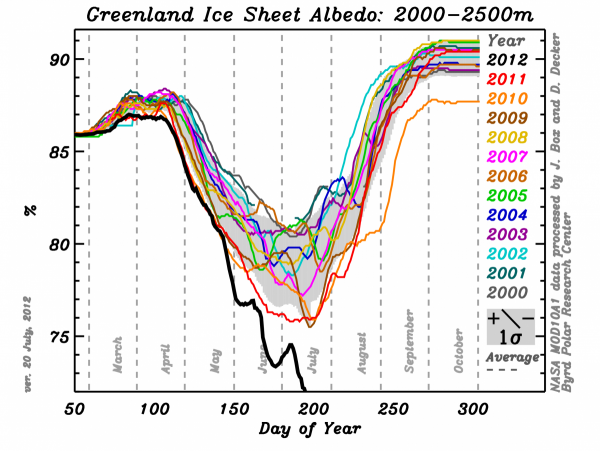How hot is it this year?
Maybe the breaking of thousands of temperature records across the USA so far this year didn’t get your attention.
Perhaps you have yet to be presented with the scary facts in Bill McKibben’s latest article about Climate Change’s New Math.
Well if you missed those cheery bits of reporting, have a gander at this shocking graph from meltfactor.org that shows a mind-blowing change in Greenland’s ice sheet “albedo.” It has literally fallen off the chart in comparison to previous years.
The Albedo is the reflectivity of the Ice Sheet. When the ice sheet melts the remaining snow and ice become more granular and thus less reflective. If it is less reflective, it absorbs more heat. When it absorbs more heat, it melts, as you probably guessed.
The evidence of this melt can also be seen in the giant ice island twice the size of Manhattan that calved off of the Petermann Glacier a few weeks ago.
Something extreme is happening in Greenland.
Subscribe to our newsletter
Stay up to date with DeSmog news and alerts






